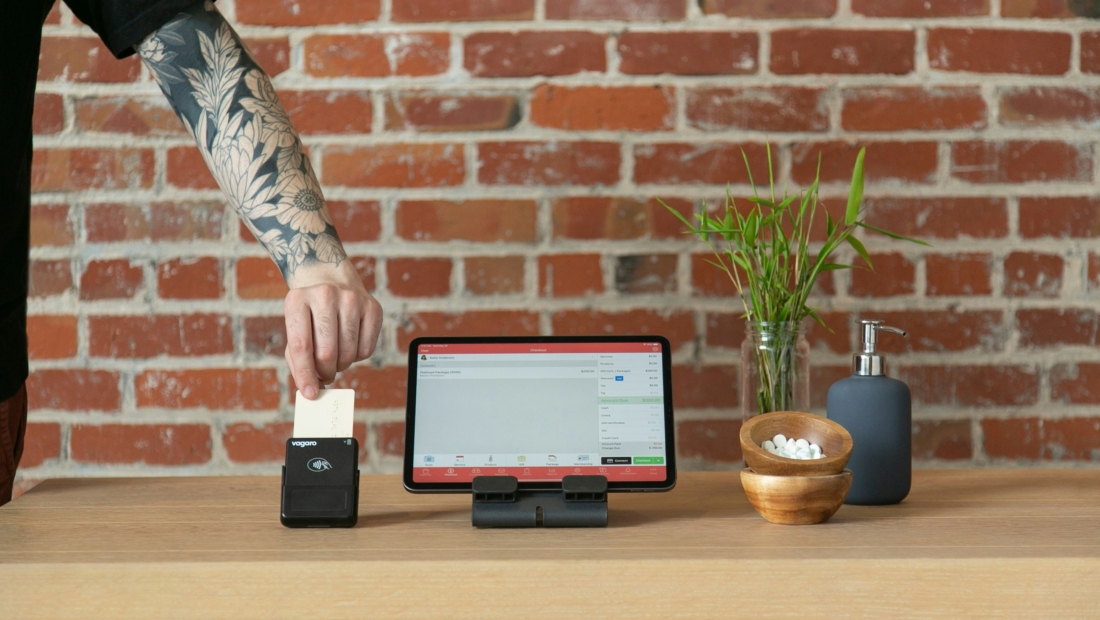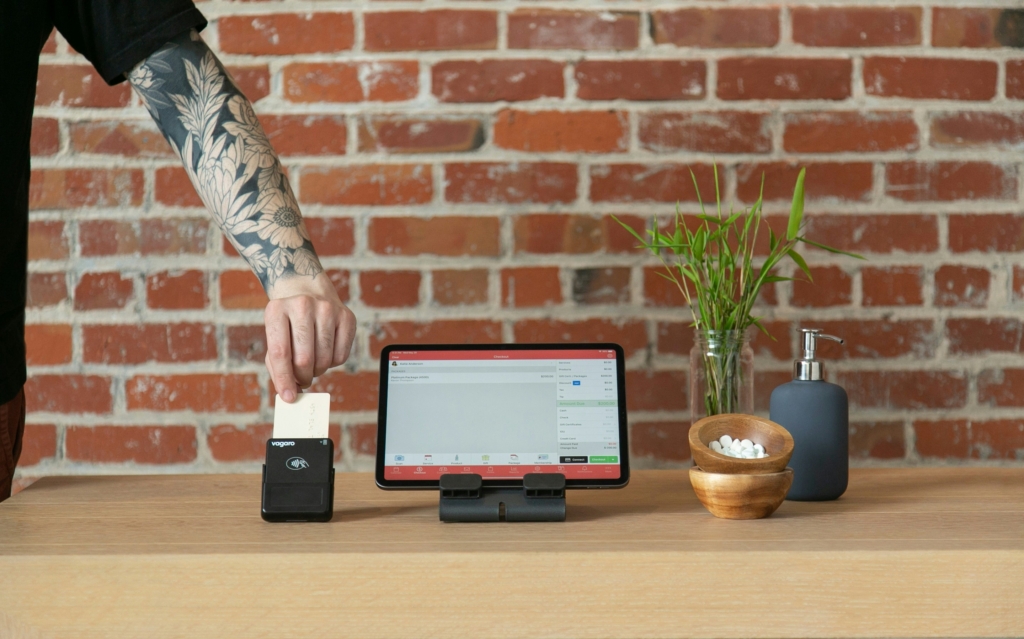How Long Does a Charge-Off Stay on Your Credit Report?

Build strong credit
while you save

If a consumer has an unpaid debt on an existing credit account, the original lender will eventually close the account and charge off the bad debt. Generally, these debts are reported to the credit bureaus and remain as a negative entry on your credit history for seven years.
What is a Charge-Off?
Credit Karma describes charge-offs as unpaid debts that a creditor (lender) has “given up” trying to recover from the borrower. Here, lenders formally stop any direct debt collection efforts and often sell the old debt to third-party debt collectors or collections agency companies.
Before “charging-off” a specific debt, the original creditor will have already unsuccessfully conducted debt collection activity for the late payment and consequently decided on absorbing the financial loss.
Lenders might charge off unpaid collection accounts that involve credit card debt, car loans, personal loans, and other debts with multiple missed payments.
Keep in mind that a charged-off credit account does not forgive the consumer’s financial obligation or act as a form of debt relief.
An original creditor will typically execute debt collection efforts throughout the early and middle stages of a debt’s delinquency, which often includes “milestones” of 30, 60, 90, and 120 days past payment due dates.
The formal charge-off of a collection account usually occurs after 180 days of non-payment.
The consumer credit industry has a secondary market composed of debt buyers or bad debt collectors that will pursue collection accounts after the original creditor has charged off a delinquent balance.
Equifax, Experian, and TransUnion are the primary credit reporting agencies or credit bureaus that compile consumer data such as payment history, missed payments, and collection account activity that are used for overall credit scoring.
How Long Does It Stay on My Credit Report For?
According to Equifax, late payments and other adverse information that a lender or creditor may submit to a credit reporting agency remain visible from the first missed payment on the account.
Keep in mind that evidence of a charged-off account will remain on your credit history for seven years, regardless of whether you later pay off the debt or not.
Any negative credit report entry is a concern, as FICO, the most widely recognized scoring model, explains that a consumer’s payment history is the largest single factor that influences your credit score (35% of your FICO credit score).
The Consumer Financial Protection Bureau (CFPB), a U.S. Government Agency that largely monitors compliance and standards involving the Fair Credit Reporting Act, states that report entries may reference up to five different dates associated with time for debt as follows:
- The final statement date might include the last date a creditor generated an invoice or other statement furnished to a consumer.
- The charge-off date
- The date when the last (final) payment was credited to the account.
- A transaction date or the date when the initial agreement was signed.
- The date when (if) any court judgment was entered or finalized against the consumer for the debt.
Should I Pay a Charged-Off Account?
The decision about whether or not a consumer should pay off an old, charged-off debt account varies depending on the circumstances. Among the most critical considerations involves the age of the debt.
For example, you likely would not pay a charged-off debt that will soon reach the seven-year limit for removal from your credit report. Conversely, some potential lenders might hesitate in approving a loan or credit card application when an unpaid charge-off exists.
Remember that paying off a charged-off debt will not remove the entry from your credit report; however, Experian indicates that most lenders or collection agencies will update the entry’s description to a more favorable “paid collection.”
Once the charge-off entry is adjusted to “paid,” you may experience a slight increase in your overall credit score depending on what is on your report.
In many cases, collection agencies will negotiate with consumers and accept some percentage of the original amount as a full settlement of the debt.
For your own protection, any negotiations or settlement agreements involving charged-off debts must always be made in writing with the documentation received before paying any amount.
How Much Can a Charge-Off Hurt My Credit Score By?
When creditors charge off your unpaid debts, your missed payments would have already negatively impacted your credit score.
Recent negative credit entries have the largest impact on your credit and the adverse effect diminishes over time.
Based on the credit bureau(s) that a lender or collector submits reporting data to, evidence of a charge-off might appear on one, two, or all three credit reporting agency files.
The following table from FICO outlines the actual amount your credit score may decline following a charge-off or another adverse entry appears:
The Impact of Adverse Credit Entries on a FICO Score
| Consumer A | Consumer B | |
| Existing Credit Score | 607 | 793 |
| Score After Late payment: (30) Days | 570 to 590 | 710 to 730 |
| Score After Late payment: (90) Days | 560 to 580 | 660 to 680 |
Source: FICO
Experian explains that the initially reported delinquencies at the 30, 60, and 90-day milestones will have hurt your credit score before the missed payments become a charge-off.
Those with multiple recent negative entries will likely recognize the sharpest decline in their credit score.

How Do I Remove Charge-offs From My Credit?
The first step consumers must take before beginning credit repair efforts or contacting a collection agency is obtaining an updated free credit report from the credit bureaus.
The three major credit bureaus provide you with a free credit report each year. Reviewing your credit report allows you clear insight regarding any credit card reporting errors, inaccurate collection agency entries, and ensures the detection of any fraud, such as identity theft.
The National Foundation for Credit Counseling (NFCC) explains that only erroneous charge-off account entries are eligible for removal before seven years elapses. This restriction applies regardless of whether the debt was subsequently paid or not.
Charged-off accounts commonly involve multiple parties, such as the original creditor and a third-party collection agency or another debt collector. With several entities submitting data, the potential for reporting errors or mistakes becomes more likely.
Errors involving credit report entries are more common than you might think. A recent Consumer Reports study indicated that approximately 34% of consumers detected at least one mistake on their consumer credit bureau reports.
Fortunately, the three major credit reporting agencies now make disputing a potential error easier than ever for U.S. consumers. The agencies each have a simple online process for reporting mistakes and have 30 days to respond to your request.
Although rare, some creditors or collectors might consider a “pay for delete” arrangement. Creditors must legally report accurate and complete information only to the credit bureaus; therefore, such agreements may represent a “gray area.”
Can I Negotiate a Charge-off Removal?
Satisfying a charged-off debt might require paying the entire unpaid balance, which could include some late fees, interest, or other penalties. In many cases, the party currently pursuing this old debt will consider negotiating a settlement arrangement for a lower amount.
John Ulzheimer, a credit industry veteran that worked with Equifax and FICO in the past, recommends that consumers who pursue paying off a charged-off collection account should consider the following five steps when approaching these activities:
- Verify who currently “owns” or holds the debt, which might now include a third-party collection company since the original credit charged off the account.
- Gather and confirm the key details, such as the current balance.
- Make a proposed settlement offer, such as 25 of the total for larger balances.
- Consider requesting a “pay for delete” arrangement.
- Always receive written documentation outlining the negotiated agreement before proceeding.
After negotiating and paying the agreed-on settlement amount, the creditor or agency should report (notify) the credit bureaus. Here, the entry listed in your credit history should reflect the balance as “paid in full” or a similar revision, which may slightly improve your credit score.
Aside from experiencing a positive sense of freedom from old debt, negotiating a settlement will prevent any further accrual of interest on the debt and will ensure the collector halts any potential lawsuit efforts toward obtaining a legal judgment against you.
Consumers who fall behind on a loan, credit card, or other credit account may find that the original creditor formally charges off the debt. Your credit score will likely decline significantly as the delinquency of the past due debt reaches 30 days, 90 days, etc.
The charge-off will remain as an entry contained within your credit history for seven years.
During this time, you may struggle with obtaining credit and potentially face a lawsuit allowing for garnishment of your wages; therefore, you may choose to pay the debt in full or negotiate a settlement amount.
FAQs
Does a Charge-Off Go Away After 7 Years?
When a consumer falls behind on the payments involving a current credit account, the original lender or creditor often “charges off” the debt after approximately six months. As with most negative or adverse entries on a consumer’s credit history, they are removed after seven years.
The seven-year period commences from the first time the account became delinquent, which typically is either the date when the first late payment occurred or when it was reported to a credit bureau.
Keep in mind that a charged-off account entry will remain on your credit report even if the debt is later paid; however, the entry will be revised as “paid” and will appear somewhat more appealing to other prospective lenders who you subsequently engage for a loan or credit card.
Should I Pay Off Charged-Off Accounts?
A consumer will typically benefit from paying a debt that was charged off in several potential ways.
First, the adverse credit report entry will usually be revised as “paid in full.” Paying off the debt might result in a slight boost to your credit score and appear more favorably to future lenders considering whether or not to extend your credit.
Paying a charged-off account will also protect you from being the subject of a lawsuit filed in a court by the creditor who is pursuing a legal judgment that may allow them to garnish your wages and use other more aggressive collection measures.
Consumers with a charged-off account that is nearing the seven-year mark when the negative entry will be removed automatically should usually avoid pursuing any payment arrangements.
Will Paying Off Charged-Off Accounts Raise My Credit Score?
Paying off the charged-off debt does not remove the entry from your credit report. Instead, the entry usually transitions to a “paid” status, which will likely have a relatively minor, positive impact on your credit score.
During the early phases when a consumer incurs late or missed payments on a credit account, the lender will usually report the delinquency to the credit bureaus at intervals of 30, 60, and 90 days.
In most cases, the bank or lender will not begin the “charge-off” process until the delinquency period approaches six months. During the interim period, the borrower’s credit score typically will have already declined significantly before the charge-off is reported to a credit bureau.
CreditStrong helps improve your credit and can positively impact the factors that determine 90% of your FICO score.
